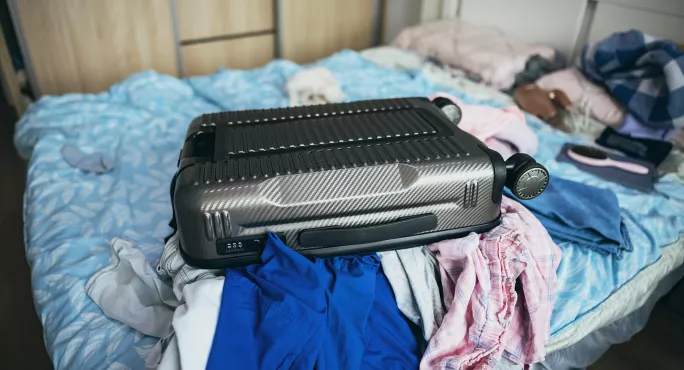Half of state school teachers work with homeless pupils

Half of teachers surveyed at state schools in England work with pupils who are or have become homeless in the past year, according to research published today.
YouGov polling found that 49 per cent of teachers said their school had children who are homeless or who had become homeless in the previous 12 months.
Homelessness charity Shelter commissioned the survey, which also found that children affected by homelessness are coming to school tired, hungry and with low-quality mental health.
The latest statistics published by the government in November showed 138,930 children in temporary accommodation - a form of homelessness - in England at the end of June.
This is a record high since the measure was first recorded in 2004.
YouGov polled 902 state school teachers at primary and secondary schools in England last month on their experiences of the consequences of what the charity described as the “housing emergency” at their schools.
- Teaching: 8 in 10 school staff diverted from job by child poverty
- Sam Freedman: Teaching quality boost ‘crushed’ by rising pupil poverty
- Child poverty: A quarter of teachers bring food to school for hungry pupils
The vast majority (91 per cent) of teachers working with children who have experienced homelessness in the past year said children’s housing issues are resulting in them coming to school tired.
The charity said children can find it difficult to sleep in temporary accommodation if it is overcrowded and they are sharing beds with siblings or parents.
Of these same teachers, 87 per cent said that children have come to school hungry, 91 per cent said that children’s living situation had negatively affected their mental health, and 81 per cent reported it had a negative impact on physical health.
And 78 per cent reported friendship breakdowns among children struggling with homelessness and bad housing.
‘It doesn’t have to be this way’
The survey should bring “shame” to the government, according to Daniel Kebede, general secretary of the NEU teaching union, who highlighted that child poverty has worsened under the current government.
He said: “Children living in precarious or temporary accommodation face challenges on a day-to-day basis that affect every part of their lives and it certainly impacts on a child’s education and learning.
“It doesn’t have to be this way. Every child without secure and safe housing is paying the price for indefensible political choices.
”Having no secure home creates real worry and anxiety for children. An incoming government must promise serious and immediate improvements to the tax and social security system to ensure that we end this unnecessary cycle of deep and worrying hardship for so many families.”
Damage to children’s education
Shelter’s chief executive, Polly Neate, said the “immense damage” being done to children’s education due to homelessness “is a national scandal”.
She added: “An alarming number of teachers are bearing witness to the horrors of homelessness and bad housing that families tell our services about every day.
“Appalling stories of children falling asleep in class because they don’t have their own bed, and parents filled with worry because they can’t even cook a hot meal in their grim hostel without a kitchen.”
The findings come after previous data found that three-quarters of school staff are increasingly being pulled away from their usual jobs to deal with the effects of child poverty.
Government action plan needed
Geoff Barton, general secretary of the Association of School and College Leaders, said: “It is a terrible reflection on us as a nation that so many young people are homeless and live in temporary accommodation, and that so many children live in poverty in general.
“School staff deal with the impacts of poverty every day - providing clothing, food and pastoral care to these children.”
Instead, Mr Barton said that education staff need “firm commitment” and an “action plan from the government” to end child poverty.
Dr Patrick Roach, general secretary of the NASUWT teaching union, said that the increase of pupils living in temporary accommodation is an “indictment of the years of failure by this government”.
He added: “Teachers on the front line in our schools are having to pick up the pieces of more than a decade of deregulation and a lack of investment in high-quality and affordable housing.
“Ministers should not underestimate the devastating and lasting impact of homelessness on children’s lives and on their future life chances.”
Concerns on how rising levels of child poverty have impacted teaching quality have also been voiced by former Department for Education special adviser Sam Freedman last month.
The DfE has been approached for comment.
You need a Tes subscription to read this article
Subscribe now to read this article and get other subscriber-only content:
- Unlimited access to all Tes magazine content
- Exclusive subscriber-only stories
- Award-winning email newsletters
Already a subscriber? Log in
You need a subscription to read this article
Subscribe now to read this article and get other subscriber-only content, including:
- Unlimited access to all Tes magazine content
- Exclusive subscriber-only stories
- Award-winning email newsletters



